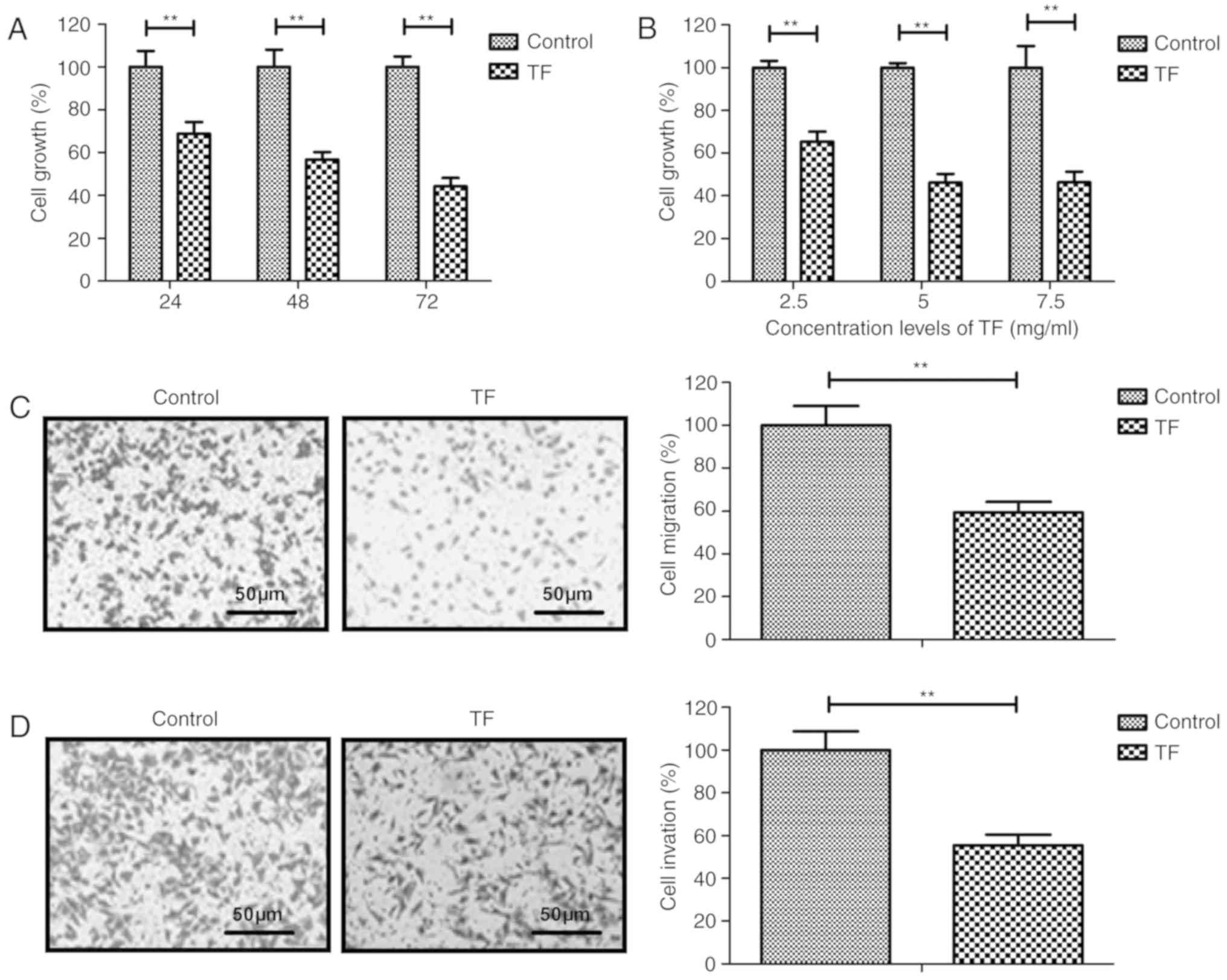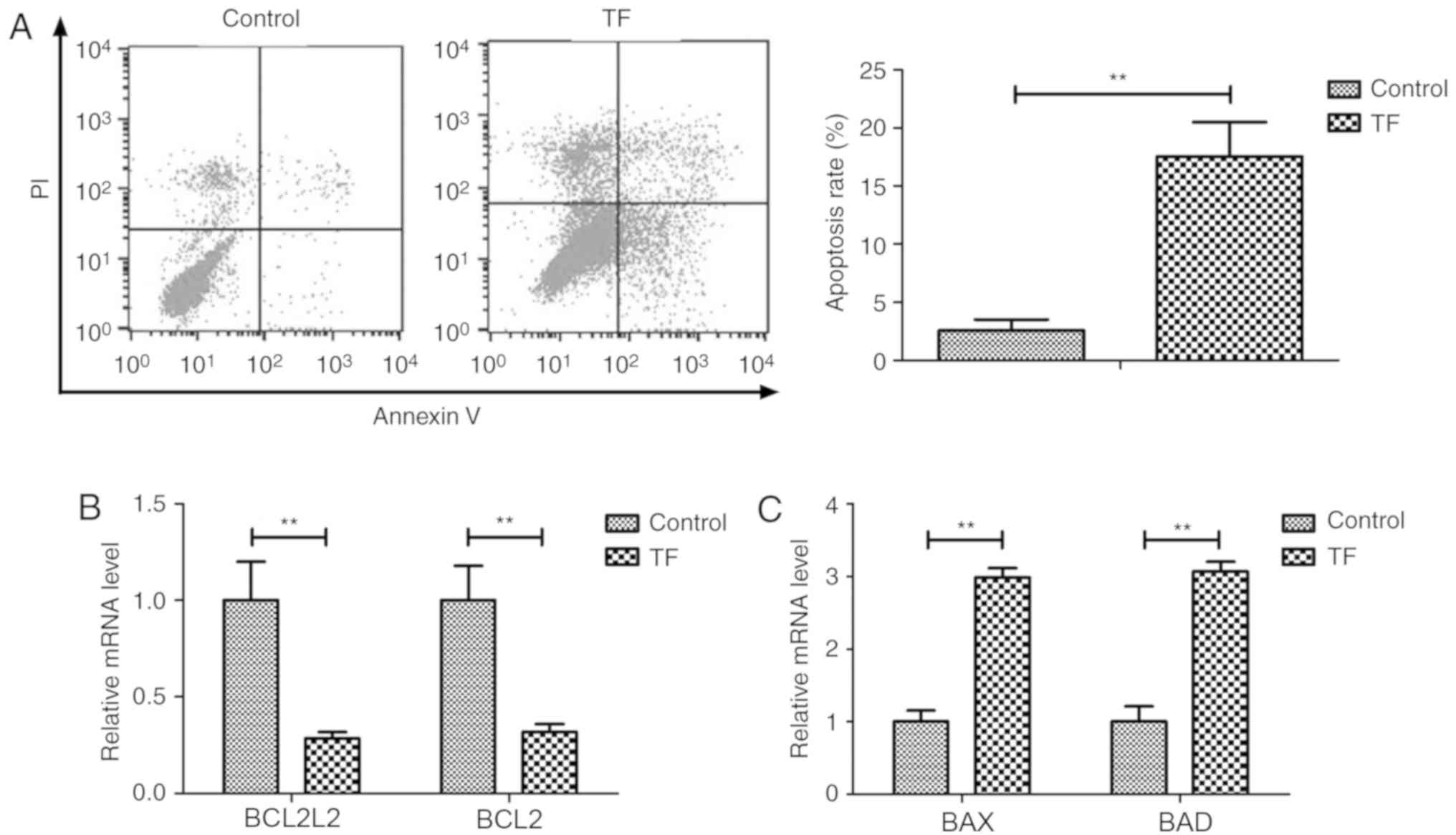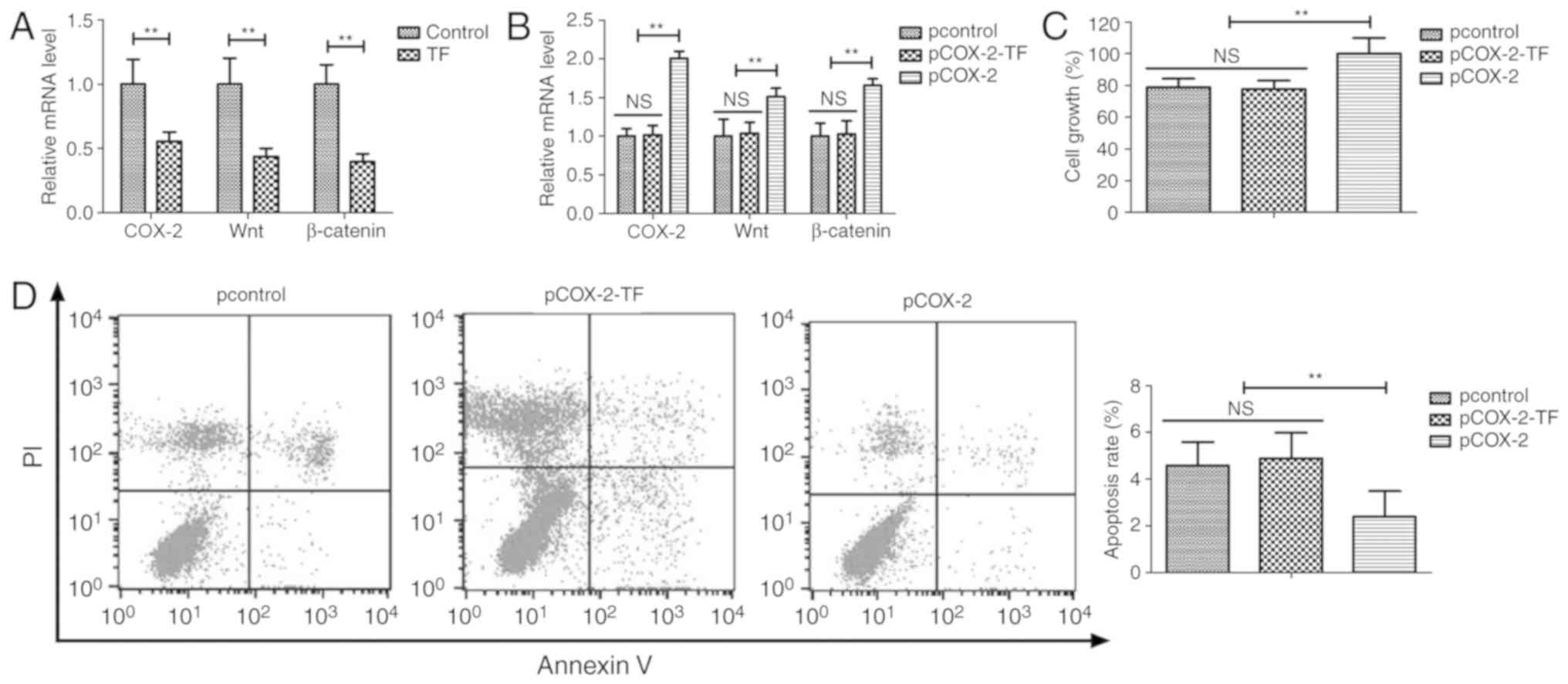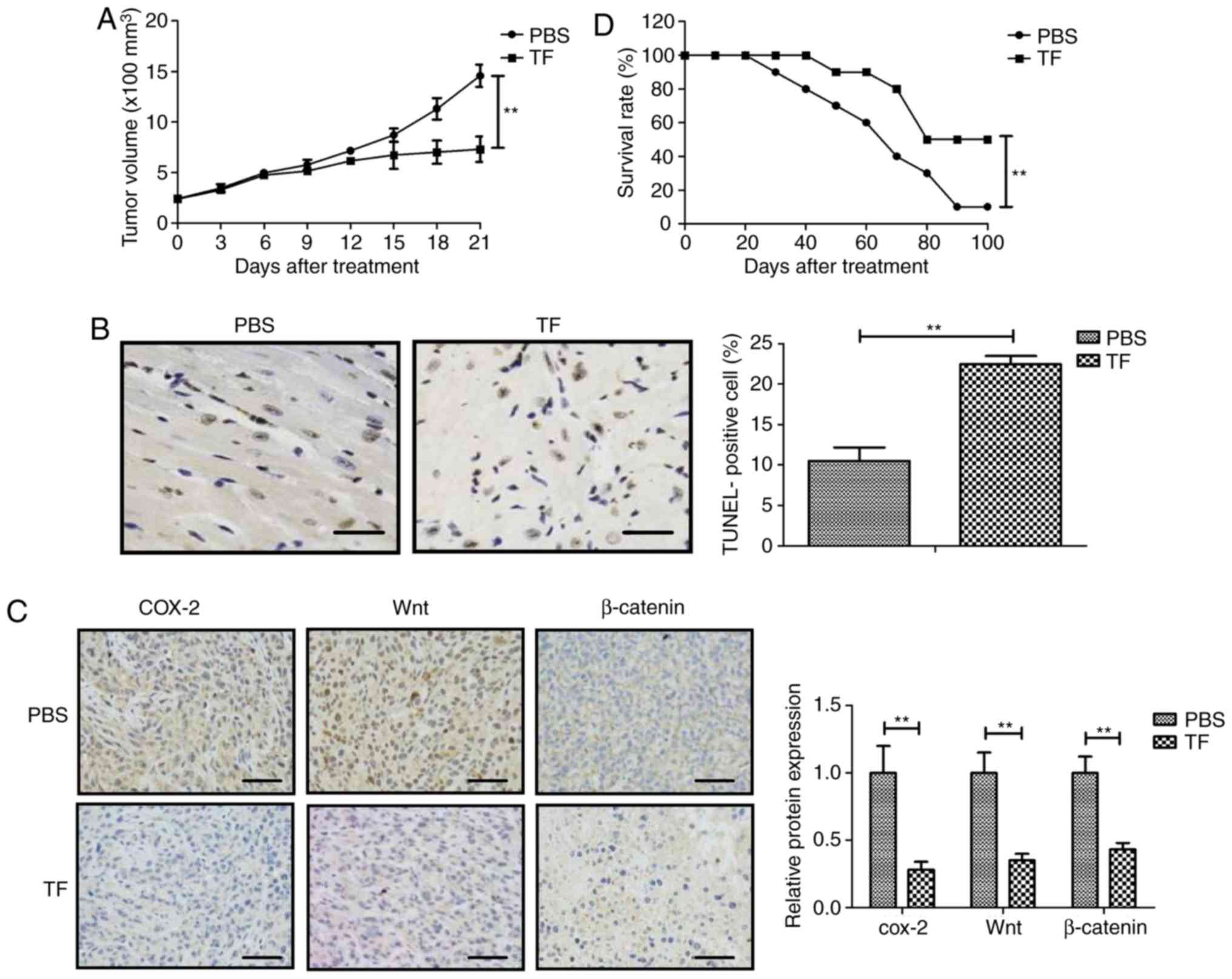|
1
|
Loganadane G, Martinetti F, Mercier O,
Krhili S, Riet FG, Mbagui R, To H, Le Péchoux C and Levy A:
Stereotactic ablative radiotherapy for early stage non-small cell
lung cancer: A critical literature review of predictive factors of
relapse. Cancer Treat Rev. 50:240–246. 2016. View Article : Google Scholar : PubMed/NCBI
|
|
2
|
Sun G, Liu B, He J, Zhao X and Li B:
Expression of EGFR is closely related to reduced 3-year survival
rate in Chinese female NSCLC. Med Sci Monit. 21:2225–2231. 2015.
View Article : Google Scholar : PubMed/NCBI
|
|
3
|
Xiao J, Hu CP, He BX, Chen X, Lu XX, Xie
MX, Li W, He SY, You SJ and Chen Q: PTEN expression is a prognostic
marker for patients with non-small cell lung cancer: A systematic
review and meta-analysis of the literature. Oncotarget.
7:57832–57840. 2016. View Article : Google Scholar : PubMed/NCBI
|
|
4
|
Li SJ, Huang J, Zhou XD, Zhang WB, Lai YT
and Che GW: Clinicopathological and prognostic significance of
Oct-4 expression in patients with non-small cell lung cancer: A
systematic review and meta-analysis. J Thorac Dis. 8:1587–1600.
2016. View Article : Google Scholar : PubMed/NCBI
|
|
5
|
Lim JS and Soo RA: Nivolumab in the
treatment of metastatic squamous non-small cell lung cancer: A
review of the evidence. Ther Adv Respir Dis. 10:444–454. 2016.
View Article : Google Scholar : PubMed/NCBI
|
|
6
|
Chen J, Wu X, Shi T and Kang M: Efficacy
of targeted agents in the treatment of elderly patients with
advanced non-small-cell lung cancer: A systematic review and
meta-analysis. Onco Targets Ther. 9:4797–4803. 2016. View Article : Google Scholar : PubMed/NCBI
|
|
7
|
Stewart EL, Tan SZ, Liu G and Tsao MS:
Known and putative mechanisms of resistance to EGFR targeted
therapies in NSCLC patients with EGFR mutations-A review. Transl
Lung Cancer Res. 4:67–81. 2015.PubMed/NCBI
|
|
8
|
Zhou JG, Tian X, Wang X, Tian JH, Wang Y,
Wang F, Zhang Y and Ma H: Treatment on advanced NSCLC:
Platinum-based chemotherapy plus erlotinib or platinum-based
chemotherapy alone? A systematic review and meta-analysis of
randomised controlled trials. Med Oncol. 32:4712015. View Article : Google Scholar : PubMed/NCBI
|
|
9
|
Lange A, Prenzler A, Frank M, Golpon H,
Welte T and von der Schulenburg JM: A systematic review of the
cost-effectiveness of targeted therapies for metastatic non-small
cell lung cancer (NSCLC). BMC Pulm Med. 14:1922014. View Article : Google Scholar : PubMed/NCBI
|
|
10
|
Zamora-Ros R, Knaze V, Lujan-Barroso L,
Romieu I, Scalbert A, Slimani N, Hjartåker A, Engeset D, Skeie G,
Overvad K, et al: Differences in dietary intakes, food sources and
determinants of total flavonoids between Mediterranean and
non-Mediterranean countries participating in the European
prospective investigation into cancer and nutrition (EPIC) study.
Br J Nutr. 109:1498–1507. 2013. View Article : Google Scholar : PubMed/NCBI
|
|
11
|
Cheng Y, Tan J, Li H, Kong X, Liu Y, Guo
R, Li G, Yang B and Pei M: Cardioprotective effects of total
flavonoids from Jinhe Yangxin prescription by activating the
PI3K/Akt signaling pathway in myocardial ischemia injury. Biomed
Pharmacother. 98:308–317. 2018. View Article : Google Scholar : PubMed/NCBI
|
|
12
|
Zhang XX, Wu QF, Yan YL and Zhang FL:
Inhibitory effects and related molecular mechanisms of total
flavonoids in Mosla Chinensis Maxim against H1N1 influenza virus.
Inflamm Res. 67:179–189. 2018. View Article : Google Scholar : PubMed/NCBI
|
|
13
|
Liu Q, Zhang L, Shan Q, Ding Y, Zhang Z,
Zhu M and Mao Y: Total flavonoids from Astragalus alleviate
endothelial dysfunction by activating the Akt/eNOS pathway. J Int
Med Res. 46:2096–2103. 2018. View Article : Google Scholar : PubMed/NCBI
|
|
14
|
Wang G, Wang J, Du L and Li F: Effect and
mechanism of total flavonoids extracted from cotinus coggygria
against glioblastoma cancer in vitro and in vivo. Biomed Res Int.
2015:8563492015. View Article : Google Scholar : PubMed/NCBI
|
|
15
|
Du WJ, Yang XL, Song ZJ, Wang JY, Zhang
WJ, He X, Zhang RQ, Zhang CF, Li F, Yu CH, et al: Antitumor
activity of total flavonoids from daphne genkwa in colorectal
cancer. Phytother Res. 30:323–330. 2016. View Article : Google Scholar : PubMed/NCBI
|
|
16
|
Wang Y, Cao HJ, Sun SJ, Dai JY, Fang JW,
Li QH, Yan C, Mao WW and Zhang YY: Total flavonoid aglycones
extract in Radix scutellariae inhibits lung carcinoma and lung
metastasis by affecting cell cycle and DNA synthesis. J
Ethnopharmacol. 194:269–279. 2016. View Article : Google Scholar : PubMed/NCBI
|
|
17
|
Xiao S, Wang J and Xiao N: MicroRNAs as
noninvasive biomarkers in bladder cancer detection: A diagnostic
meta-analysis based on qRT-PCR data. Int J Biol Markers.
31:e276–e285. 2016. View Article : Google Scholar : PubMed/NCBI
|
|
18
|
Livak KJ and Schmittgen TD: Analysis of
relative gene expression data using real-time quantitative PCR and
the 2(-Delta Delta C(T)) method. Methods. 25:402–408. 2001.
View Article : Google Scholar : PubMed/NCBI
|
|
19
|
Chen L, Wei Y, Zhao S, Zhang M, Yan X, Gao
X, Li J and Gao Y, Zhang A and Gao Y: Antitumor and
immunomodulatory activities of total flavonoids extract from
persimmon leaves in H22 liver tumor-bearing mice. Sci Rep.
8:105232018. View Article : Google Scholar : PubMed/NCBI
|
|
20
|
Feng Z, Hao W, Lin X, Fan D and Zhou J:
Antitumor activity of total flavonoids from Tetrastigma hemsleyanum
Diels et Gilg is associated with the inhibition of regulatory T
cells in mice. OncoTargets Ther. 7:947–956. 2014.
|
|
21
|
Zhuang T, Djemil T, Qi P, Magnelli A,
Stephans K, Videtic G and Xia P: Dose calculation differences
between Monte Carlo and pencil beam depend on the tumor locations
and volumes for lung stereotactic body radiation therapy. J Appl
Clin Med Phys. 14:40112013. View Article : Google Scholar : PubMed/NCBI
|
|
22
|
Stepanichev M, Markov D, Pasikova N and
Gulyaeva N: Behavior and the cholinergic parameters in olfactory
bulbectomized female rodents: Difference between rats and mice.
Behav Brain Res. 297:5–14. 2016. View Article : Google Scholar : PubMed/NCBI
|
|
23
|
Kalyuzhny AE: Combination of TUNEL assay
with immunohistochemistry for simultaneous detection of DNA
fragmentation and oxidative cell damage. Methods Mol Biol.
682:15–27. 2011. View Article : Google Scholar : PubMed/NCBI
|
|
24
|
Ren Z, Zhou S, Liu Z and Xu S: Randomized
controlled trials of induction treatment and surgery versus
combined chemotherapy and radiotherapy in stages IIIA-N2 NSCLC: A
systematic review and meta-analysis. J Thorac Dis. 7:1414–1422.
2015.PubMed/NCBI
|
|
25
|
Cao X, Zou H, Cao J, Cui Y, Sun S, Ren K,
Song Z, Li D and Quan M: A candidate Chinese medicine
preparation-fructus viticis total flavonoids inhibits stem-like
characteristics of lung cancer stem-like cells. BMC Complement
Altern Med. 16:3642016. View Article : Google Scholar : PubMed/NCBI
|
|
26
|
Attoub S, Hassan AH, Vanhoecke B, Iratni
R, Takahashi T, Gaben AM, Bracke M, Awad S, John A, Kamalboor HA,
et al: Inhibition of cell survival, invasion, tumor growth and
histone deacetylase activity by the dietary flavonoid luteolin in
human epithelioid cancer cells. Eur J Pharmacol. 651:18–25. 2011.
View Article : Google Scholar : PubMed/NCBI
|
|
27
|
Zhu WB, Xiao N and Liu XJ: Dietary
flavonoid tangeretin induces reprogramming of epithelial to
mesenchymal transition in prostate cancer cells by targeting the
PI3K/Akt/mTOR signaling pathway. Oncol Lett. 15:433–440.
2018.PubMed/NCBI
|
|
28
|
Adhami VM, Syed DN, Khan N and Mukhtar H:
Dietary flavonoid fisetin: A novel dual inhibitor of PI3K/Akt and
mTOR for prostate cancer management. Biochem Pharmacol.
84:1277–1281. 2012. View Article : Google Scholar : PubMed/NCBI
|
|
29
|
He L, Wu Y, Lin L, Wang J, Wu Y, Chen Y,
Yi Z, Liu M and Pang X: Hispidulin, a small flavonoid molecule,
suppresses the angiogenesis and growth of human pancreatic cancer
by targeting vascular endothelial growth factor receptor 2-mediated
PI3K/Akt/mTOR signaling pathway. Cancer Sci. 102:219–225. 2011.
View Article : Google Scholar : PubMed/NCBI
|
|
30
|
Wang S, Tian Q and An F: Growth inhibition
and apoptotic effects of total flavonoids from Trollius chinensis
on human breast cancer MCF-7 cells. Oncol Lett. 12:1705–1710. 2016.
View Article : Google Scholar : PubMed/NCBI
|
|
31
|
Qinglin L, Xin W, Like Z, Fang L, Cao G
and Huang P: A study on the anti-tumor mechanism of total
flavonoids from radix tetrastigmae against additional cell line
based on COX-2-mediated Wnt/β -catenin signaling pathway.
Oncotarget. 8:54304–54319. 2017. View Article : Google Scholar : PubMed/NCBI
|
|
32
|
Schweigert A, Fischer C, Mayr D, von
Schweinitz D, Kappler R and Hubertus J: Activation of the
Wnt/β-catenin pathway is common in wilms tumor, but rarely through
beta-catenin mutation and APC promoter methylation. Pediatr Surg
Int. 32:1141–1146. 2016. View Article : Google Scholar : PubMed/NCBI
|
|
33
|
Ye Y, Long X, Zhang L, Chen J, Liu P, Li
H, Wei F, Yu W, Ren X and Yu J: NTS/NTR1 co-expression enhances
epithelial-to-mesenchymal transition and promotes tumor metastasis
by activating the Wnt/β-catenin signaling pathway in hepatocellular
carcinoma. Oncotarget. 7:70303–70322. 2016. View Article : Google Scholar : PubMed/NCBI
|
|
34
|
Lin HH, Feng WC, Lu LC, Shao YY, Hsu CH
and Cheng AL: Inhibition of the Wnt/beta-catenin signaling pathway
improves the anti-tumor effects of sorafenib against hepatocellular
carcinoma. Cancer Lett. 381:58–66. 2016. View Article : Google Scholar : PubMed/NCBI
|
|
35
|
Bi X, Xia X, Mou T, Jiang B, Fan D, Wang
P, Liu Y, Hou Y and Zhao Y: Anti-tumor activity of three
ginsenoside derivatives in lung cancer is associated with
Wnt/β-catenin signaling inhibition. Eur J Pharmacol. 742:145–152.
2014. View Article : Google Scholar : PubMed/NCBI
|


















